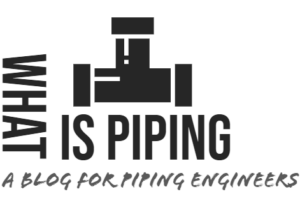What is a Project Manager?
A project manager is a person who is responsible for the successful initiation, planning, design, execution, monitoring, controlling, and closure of a project. He is the overall leader and leads his team to ensure successful project completion within the scheduled time and budget. In every project, a project manager is a respected position and is held by key personnel of an organization. Depending on the type of industry, the role of a project manager may vary slightly but their main mission is to reduce project cost, maximize the efficiency of team members and increase company profits. From the start of the project till its completion, project managers are accountable for the success or failure of the project. The term “project manager” is widely used in information technology, construction, chemical, petrochemical, architecture, and oil & gas industries. Good project managers possess excellent entrepreneurial capabilities with various skill sets. In this article, we will explore the role of a project manager in detail.
Role of a Project Manager
A project manager runs the project on a day-to-day basis. He leads and manages the project team. They are persons with strong critical-thinking abilities and possess wonderful communication skills to solve problems as and when they arise. Project managers are well-informed about the project and always motivated. The role of a good project manager can be described as follows:
Proper Planning of Project Activities:
A project manager defines the project scope and strategically plans all project activities to prepare the project schedule. He must foresee the interdependency of each activity and prioritize accordingly. He must understand the resource allocation as per availability.
Organize the project team and encourage the members to perform their best:
A good project manager always keeps an eye on the project schedule and through his project team solves any major issues with disciplines in case of any deviation from the schedule. He encourages his team to solve any obstacle to meeting the commitments and brings the full potential of members. He never blames his teammates and establishes a perfect example of teamwork, understanding, and effectiveness.
Time Management:
A good project manager must be good at negotiating achievable deadlines and must interact the same with team members.
Deliverable Management:
Every project has a number of deliverables. Project managers must keep track that all deliverables are delivered within the agreed timeframe and budget.
Monitoring Project Progress:
In current times, money is normally related to progress. So, it is the project manager’s responsibility to monitor the progress through various tools and techniques and status reports. He must intervene in cases if progress is not as per planning.
Regular Meetings with Client, Project Team, and Discipline members:
Project managers must schedule regular meetings to understand what is going well and what is not. It will ensure the smooth working and progress of the project. Regular client meetings and meeting their expectations will build up good relationships with the client which will ensure more project wins from the same client in the future.
Managing Changes and Deviations:
A good project manager must track all the scope deviations and track those to discuss with the client regarding cost and schedule impact.
Execution:
The project manager should always be part of the successful execution of each project stage. He must understand each project phase through frequent, open communication with the project team members, discipline leads, and stakeholders.
Ensuring customer satisfaction:
Project managers must minimize uncertainty to avoid any unwanted surprises and involve stakeholders/clients as frequently as possible. Maintaining effective communication about project updates is always preferable.
Analyzing and managing project risk:
Good Project managers must meticulously identify the potential risks and evaluate those prior to the actual stage to reduce the impact.
Closing the project and ensuring Quality:
An ideal project manager must ensure all deliverables are following the quality system to ensure reduced rework at a later stage; It will increase the profitability of the company.
Skills of a Project Manager
A good project manager must have the following skills to work efficiently:
- Proven Work Experience
- Project Management
- Developing and Tracking Budgets
- Financial Analysis
- Solid Organization Skills
- Efficient Planning
- Coaching
- Supervision
- Problem-Solving Skill
- Staffing
- Process Improvement
- Decision making
- Planning
- Performance Management
- Inventory Control
- Excellent Communication Skill
- Resource Management
- Leadership Skill
- Creative mindset
- Analytical Skills
How to become a Project Manager?
If you are reading till this point means you are wondering about “How to become a project manager”. If you don’t have that huge experience and skills then you can follow the below-mentioned steps to fulfill your dream of becoming a project manager.
- Decide to become a project manager
- Find out the proper certification you wish to pursue. For example, you can opt for PMP certification by PMI. Click here to know more about PMP certification preparation steps.
- Start your project management education
- Prepare yourself for the certification
- Maintain your certification through continuous learning, working, and improvement.
Wish to know more. Then click here and attend any of the online courses.
